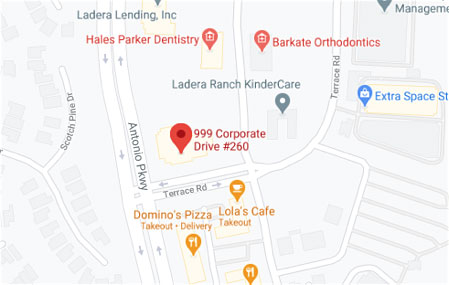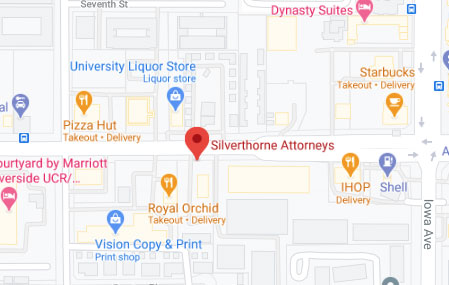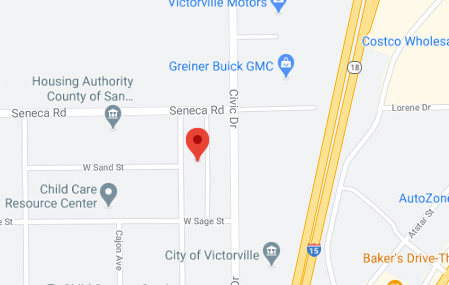
I will not lie, today’s commute was a little rough. I notice whenever the weather changes and there is a little bit of moisture and water on the ground, drivers in Southern California forget how to driver. I’m from Northern California and though we do not have a lot of seasonal changes, we do know how to drive in the rain. With dramatic changes in the weather also comes changes in the roads and driving conditions. Working for an accident attorney, I am a little more cautious on the roads. If you are suffering from injuries due to an accident, please do not hesitate to contact a personal injury lawyer at Silverthorne Attorneys. Consultations are free!
Accident Attorney | How Potholes Form
Potholes generally form during winter and spring months when water and ice (depending on your location) disrupt the base layers underneath the pavement. When cars drive over the weak spots on the pavement, the pavement deforms, cracks, and chips away. Thus leaving a hole in the surface of the road. Potholes usually start off slow but now over a period of time due to traffic. They can potentially become deep and large enough to damage certain parts of your car.
So, what do you do if you hit a pothole? First thing’s first – don’t ignore it. When you get to a safe place or to your destination check to see if there is any damage to your car. This is because a bump can cause damage to your car that has the potential to get worse.
How Potholes Affect Drivers
In certain areas, potholes can wreak a lot of havoc on cars. for example: American drivers will pay upwards of $3 billion dollars, or an average cost of $300 dollars each, every year to due the damages that potholes can cause.
Potholes not only affect your bank account, they can also have a huge affect on your safety on the road as well.
Common Pothole Concerns
There are a few areas of your car where you should pay extra attention to if you run over a pothole.
Tires
Hitting a pothole can be especially disastrous on your tires. If the force is great enough, there can be a shift of air inside of your tire. Which, worst case scenario, can cause they sidewall of the tire to blow out. If the impact with the pothole has caused your tire to lose air pressure, your car’s tire Pressure Monitoring System (if you have one) light should immediately go one. Tread separation is also a huge deal because potholes usually have sharp edges tat compress the tire against the wheel on impact. This slices the rubber or snaps the belts that help hold your tires together.
Even if your tire is sill holding air, you should make sure to check it immediately. Look for any bulges sticking out of the side. This could be a sign of internal damage to your tire. Which means that you will likely need to replace the tire. Unfortunately, there is no way to patch or plug a sidewall.
Though tire replacement is expensive, it is not as expensive or as stressful as suffering from injuries due to an accident caused by the pothole responsible for a tire blowout.
Wheels
Scrapped rims are never attractive on your car. However, even the worst curbside accident will not damage your wheel quite like a pothole can. That is because the angles that your wheel hits the pothole can cause serious damage to your wheels. One of the first things you want to look for after driving over a pothole is to see if any pieces have broken off or if the wheel has any dents in it. a bent wheel will not roll smoothly and may cause there to be friction between the tire and the wheel. Chips are usually really easy to notice. They look like chunks are missing from the rim; where the wheel meets the tire. You do want to inspect your car right away because chunks can also present themselves as hairline fractures along the circumference of the wheel or in one of the spokes. Bent wheels can sometimes be repaired. However, chipped or cracked wheels can fail and must be replaced entirely.
Suspension
The suspension on a car is designed to absorb impacts and provide a smooth ride but there is a limit to how much they can handle. Sudden and jarring hits against a pothole can cause problems. These include: misalignment, broken ball joints, damage to your shocks or struts. Suspension problems due to misalignment are easily fixed by your mechanic. but if it is not fixed right away, you may notice that your steering will pull to one direction, the handling will feel loose, and your tires will wear unevenly.
Broken ball joints, struts, or shocks will result in a variation of vibrations and sounds, a wandering steering wheel, your car leaning to one side, etc. It can be extremely difficult to diagnose suspension damage, so we always suggest that you take it to an experienced mechanic. This way your entire systems can be checked for any problems.
Exhaust
Exhaust pipes run along the undercarriage of your car, which means that they are the perfect target for potholes. Deep potholes can cause the bottom of your car to scrape against the pavement and cause your car to bottom out. This can dent or even rip a hole into the exhaust pipes. muffler or converter. Which also means that you may experience a loss of power or annoying noises in your exhaust system. If there is a hole in your exhaust pipes, your car can potentially leak out fumes into the cabin of your car. Which post a real health hazard.
Suffering from Injuries? Contact a Personal Injury Lawyer Today!
If you are suffering from injuries due to the negligent acts of another, even if it is a city entity, please do not hesitate to contact us. Consultations with a personal injury lawyer at Silverthorne Attorneys are free.
As an accident lawyer, we know how difficult it can be after you have been injured in an accident. That is why we are here to help you. We want to make sure that you have the best representation possible. So you and your family can heal from the accident.












